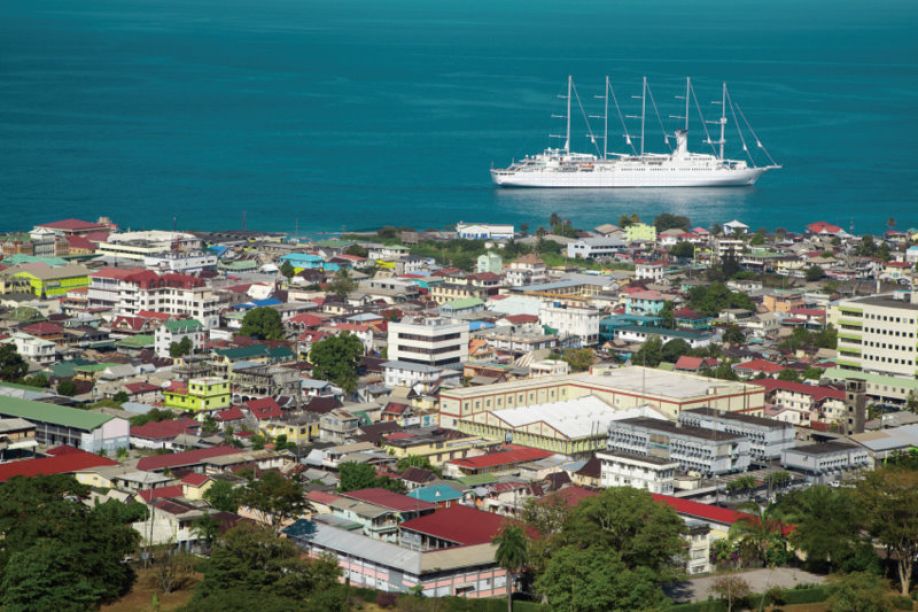In order to partake in second citizenship programs, Chinese citizens have to deal with the tough choice of whether to give up their home passports.
Pros and cons
It is also an area of tax planning that is rife with fraud, there are only three legitimate programs in existence in St Kitts and Nevis, Dominica and Austria but the Internet is littered with offers of citizenship programs from South America to southeast Asia. For those who are not careful, there are significant pitfalls. Despite this fact, the legitimate programs out there offer much for Chinese nationals, explains Denny Ko, managing partner of Henley & Partners law firm. n alternative citizenship and passport is a powerful tool for international tax planning, it gives you extra privacy in banking and investment, and most importantly perhaps, citizenship and a passport from a small, peaceful country can save your life when travelling and in times of political unrest, civil war, terrorism, and other delicate situations. or good reasons, many international business people and important persons who are active worldwide consider an alternative passport the best life insurance money can buy, he says. As the only three countries offering legal citizenship-by-investment programs, the specifics, and cost of programs in Austria, Dominica and St. Kitt and Nevis vary widely. The St. Kitts and Nevis program is particularly popular because the passport has a good international reputation and the costs are not astronomical. t. Kitts and Nevis is likely to be the best option overall if you are looking for a good solution that can be implemented efficiently said Ho. To qualify for citizenship of St. Kitts and Nevis, you must either invest in an approved real-estate project with a value of at least US$350,000, or make a contribution to the Sugar Industry Diversification Foundation (a public charity) for the amount of US$200,000. But while the real estate option may look simple, there are a number of additional costs to bear in mind. Government fees cost US$35,000 for a single applicant plus US$15,000 for each dependent and a US$3,500 due diligence fee per applicant over 16 years of age. The processing time can be complicated and protracted as of course this option involves the purchase of real estate you can expect to wait minimum of 3-4 months, but it can take longer.
Family options
Alternatively, you can choose to invest your cash in the Sugar Industry Diversification Foundation option. For a single applicant, it costs US$200,000 nonrefundable contribution required, and US$35,000 application and processing fees. Different categories are available depending on how many dependants you have. or most of our clients, the St. Kitts and Nevis citizenship-by-investment program is now the most attractive option. Whether the SIDF contribution option or the real-estate option is preferable depends on a number of factors and your individual situation and preferences, Ho said. As far as freedom to travel goes, St. Kitts and Nevis citizens enjoy a passport with good visa-free travel, as St. Kitts and Nevis has recently been added to the EU list of countries whose citizens are allowed visa-free entry to the Schengen Area in the EU so it is now possible to travel throughout the EU visa-free ue to this recent substantial improvement, it is expected that the Government of St. Kitts and Nevis will in due course increase the required minimum investment levels and Government fees. Those looking for a cheaper option could consider citizenship by investment in Dominica. Again there are options depending on whether the applicant is providing for dependents. The Family option, which costs US$100,000 qualifies the applicant, his or her spouse and two children under 18 years for citizenship, with an additional US$25,000 per child is required for each child under 25 years. For just one person, the cost is US$75,000, and both options are subject to processing, agent and registration and due diligence fees. The process takes on average between 5 and 12 months. The final option, Austria is the most costly, but for the expense it has by far the most benefits - full citizenship and a passport from a neutral EU-country with an excellent reputation without prior residence requirements. Applicants are required to actively invest in the Austrian economy, and generally a minimum investment or public contribution of at least EUR2 million is expected. Passive investments in government bonds, listed shares, real estate, etc. do not qualify. Costs and fees of EUR400,000 or more apply, depending on the case and the number of persons in an application, as each case is handled on an individual basis. or an investor who is prepared to make an appropriate investment in Austria, this is of course the very best option, even taking into consideration the substantial costs and fees. says Ho.
Making noise
While there are numerous other countries making noise about the possibility of introducing second citizenship programs, investors currently stray from the big three at their peril. That said, in the rapidly evolving world of tax planning, few would be surprised if new programs arise in the coming years as offshore finance centres seek to diversify their products away from banking. There has been talk of second citizenship programs in Guatemala, while other countries - most notably Australia - contain citizenship options for investors buying significant properties. But jurisdictions such as St. Kitts and Nevis, which already has a significant number of Chinese economic citizens, remain the first choice in 2010.
















